Bomb scare, suspicious vehicle rattle nervous Sri Lanka amid attack probe
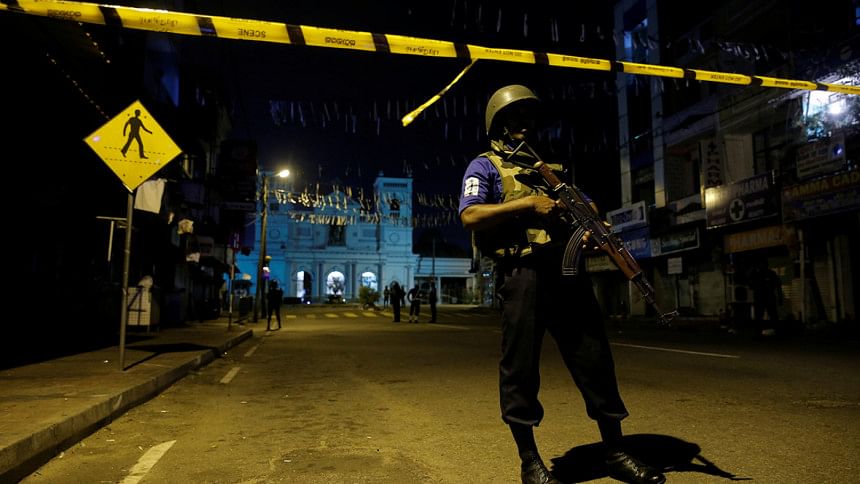
-- Bomb scare, suspicious vehicle rattle nervous Sri Lankan capital
-- Focus turns towards foreign groups supporting Sri Lankan bombers
-- Sixteen more people taken in for questioning
-- Others caught for visa offences in nationwide sweep
-- Pakistanis flee in fear of reprisals
Sri Lankan authorities locked down the central bank and the road leading to the jittery capital's airport was shut briefly by a bomb scare on Thursday as more people were swept up in the search for those behind Easter Sunday bombings that killed 359.
Two bank officials told Reuters the street outside the building near the World Trade Center in the capital, Colombo, was blocked to traffic before the security alert was lifted.
Underscoring the nervous atmosphere in the Indian Ocean nation, authorities also shut the entry road to Colombo's main airport after a suspicious vehicle was identified at a nearby carpark. The road was reopened when the alert was declared a false alarm.
A police spokesman also said there was a so-far unexplained explosion in a town east of the capital but there were no casualties. It was not a controlled detonation like other blasts in recent days and was being investigated, he said.
More people, including foreigners, were swept up for questioning overnight as domestic and international authorities probed deeper into the bombings, which were potentially the deadliest operation claimed by Islamic State.
About 500 people were also wounded in the attacks on three churches and four hotels.
Police said an Egyptian and several Pakistanis were among those detained overnight, although there was no immediate suggestion they had direct links to the attacks.
HOME-GROWN BOMBERS
A picture has slowly emerged of a group of nine well-educated, home-grown Islamist suicide bombers, including a woman, who carried out the attacks in the South Asian nation.
However, authorities have also focused their investigations on international links to domestic Islamist groups - National Thawheed Jama'ut and Jammiyathul Millathu Ibrahim - they believed carried out the attacks.
Islamic State offered no firm information to back up its claim of responsibility.
The Islamist group released a video on Tuesday that showed eight men, all but one with their faces covered, standing under a black Islamic State flag and declaring their loyalty to its leader, Abu Bakr Al-Baghdadi.
The man whose face could be seen has been identified as Mohamed Zahran, a preacher from the east of Sri Lanka known for his militant views who officials believe was the attack's mastermind.
Australian Prime Minister Scott Morrison said on Thursday another of the bombers had lived in Australia with his wife and child on a student visa but left in 2013.
Morrison did not identify the man, although his family have said his name was Abdul Latheef Mohamed Jameel.
"I can confirm that the suicide bomber had been in Australia," Morrison told reporters.
Police said on Thursday 16 more people were detained for questioning overnight, taking the number held since Sunday to at least 76. That number includes a Syrian national.
A police statement said one of those detained overnight was linked to a "terrorist organisation" but gave no other details.
It said another was taken into custody after they investigated posts on the individual's Facebook page and found what they described as "hate speech".
"It was related to the spreading and preaching of terrorism," a police spokesman said.
Others have also been caught up in the broader crackdown.
Police said they detained an Egyptian who was found not to have a valid visa or passport. The man taught Arabic in a school about 70 km (45 miles) from Colombo and had been living in Sri Lanka for more than seven years.
A police spokesman also said a group of Pakistanis had been detained among an unspecified number of foreign nationals for overstaying their visas.
PAKISTANIS FLEE
The bombings shattered the relative calm that has existed in Buddhist-majority Sri Lanka since a civil war against mostly Hindu, ethnic Tamil separatists ended 10 years ago, and raised fears of a return to sectarian violence.
Sri Lanka's 22 million people include minority Christians, Muslims and Hindus. Until now, Christians had largely managed to avoid the worst of the island's conflict and communal tensions.
President Maithripala Sirisena will meet representatives of different faiths later on Thursday to address concerns of a sectarian backlash.
Muslims have fled the Negombo region on Sri Lanka's west coast since scores of worshippers were killed in the bombing of the St. Sebastian church there on Sunday. Communal tensions have since flared.
Hundreds of Pakistani Muslims left the port city on Wednesday, crammed into buses, after threats of revenge.
"Because of the bomb blasts and explosions that have taken place here, the local Sri Lankan people have attacked our houses," Adnan Ali, a Pakistani Muslim, told Reuters as he prepared to board a bus.
Sri Lankan officials have said they believed the bombings were carried out in retaliation for the March 15 attacks by a lone gunman on two mosques in New Zealand that killed 50 people.
New Zealand Prime Minister Jacinda Ardern has said she has seen no evidence to support that claim.
Most of the Easter Sunday victims were Sri Lankans, although authorities confirmed at least 38 foreigners were also killed. These included British, US, Australian, Turkish, Indian, Chinese, Danish, Dutch and Portuguese nationals.

 For all latest news, follow The Daily Star's Google News channel.
For all latest news, follow The Daily Star's Google News channel. 

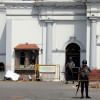
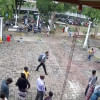
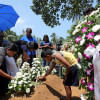
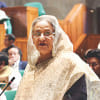
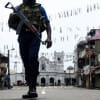


Comments